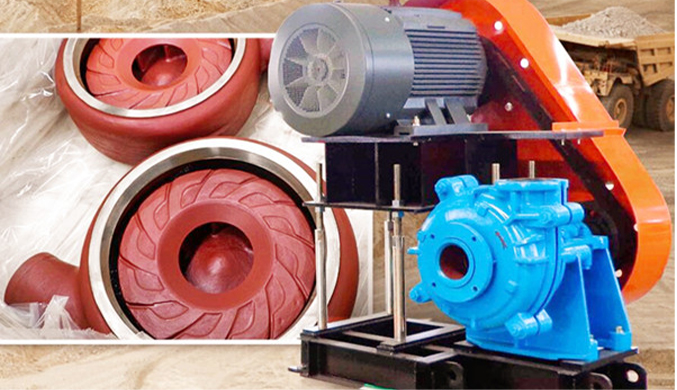English
- Afrikaans
- Albanian
- Amharic
- Arabic
- Armenian
- Azerbaijani
- Basque
- Belarusian
- Bengali
- Bosnian
- Bulgarian
- Catalan
- Cebuano
- Corsican
- Croatian
- Czech
- Danish
- Dutch
- English
- Esperanto
- Estonian
- Finnish
- French
- Frisian
- Galician
- Georgian
- German
- Greek
- Gujarati
- Haitian Creole
- hausa
- hawaiian
- Hebrew
- Hindi
- Miao
- Hungarian
- Icelandic
- igbo
- Indonesian
- irish
- Italian
- Japanese
- Javanese
- Kannada
- kazakh
- Khmer
- Rwandese
- Korean
- Kurdish
- Kyrgyz
- Lao
- Latin
- Latvian
- Lithuanian
- Luxembourgish
- Macedonian
- Malgashi
- Malay
- Malayalam
- Maltese
- Maori
- Marathi
- Mongolian
- Myanmar
- Nepali
- Norwegian
- Norwegian
- Occitan
- Pashto
- Persian
- Polish
- Portuguese
- Punjabi
- Romanian
- Russian
- Samoan
- Scottish Gaelic
- Serbian
- Sesotho
- Shona
- Sindhi
- Sinhala
- Slovak
- Slovenian
- Somali
- Spanish
- Sundanese
- Swahili
- Swedish
- Tagalog
- Tajik
- Tamil
- Tatar
- Telugu
- Thai
- Turkish
- Turkmen
- Ukrainian
- Urdu
- Uighur
- Uzbek
- Vietnamese
- Welsh
- Bantu
- Yiddish
- Yoruba
- Zulu
Telephone: +86 13120555503
Email: frank@cypump.com
Aug . 12, 2024 16:56 Back to list
Efficient Water Pumps Designed for Safe Drinking Water Supply and Distribution Systems
The Importance of Water Pumps for Potable Water Supply
Water is an essential resource for life, making access to potable water a key concern for communities worldwide. One of the most critical components in ensuring that clean water reaches households and businesses is the water pump. Water pumps are mechanical devices that move water from one place to another, and their role in the provision of potable water cannot be overstated.
Understanding Potable Water and Its Significance
Potable water, often referred to as drinking water, is water that is safe for human consumption. It is vital for health, hygiene, and overall quality of life. Unfortunately, despite being surrounded by water, many regions face challenges in accessing safe drinking water due to contamination, inadequate infrastructure, or a lack of natural water sources. This is where water pumps come into play, facilitating the movement and distribution of clean water from wells, rivers, or treatment plants to end users.
Types of Water Pumps
There are various types of water pumps used to supply potable water, each designed for specific applications. The most common types include
1. Submersible Pumps These pumps are submerged in the water source. They are efficient for deep wells, where they can push water upward to the surface. Submersible pumps are often used in rural areas where groundwater is a primary source of potable water.
2. Jet Pumps Jet pumps are excellent for shallow wells and draw water using a jet of pressurized water. They are often found in residential settings where water is sourced from shallow aquifers.
3. Centrifugal Pumps These pumps utilize centrifugal force to move water and are commonly used in municipal water supply systems. They can handle high flow rates and are efficient for large-scale water distribution.
4. Hand Pumps In remote or underserved communities, hand pumps can be vital. They require no electricity and allow individuals to manually draw water from underground sources, ensuring access to potable water in areas without advanced infrastructure.
water pump for potable water

Role of Water Pumps in Ensuring Clean Water
Water pumps serve multiple functions in the potable water supply chain
- Extraction They extract water from underground aquifers or surface bodies of water, making it possible to access supplies that would otherwise be unavailable.
- Transport Once collected, water needs to be transported to treatment facilities, storage tanks, or end-users. Water pumps facilitate this movement, ensuring that clean water reaches those who need it.
- Pressure Maintenance In distribution systems, maintaining adequate water pressure is essential to prevent contamination and ensure effective delivery. Water pumps play a crucial role in maintaining this pressure in pipelines.
Challenges and Solutions
Despite their importance, water pumps can face challenges, including mechanical failures, lack of maintenance, and energy dependence. Regular maintenance and sustainable energy sources, such as solar power, can enhance the reliability of water pumps, especially in remote areas. Additionally, educating local communities about proper usage and maintenance can prolong the lifespan of these essential devices.
Conclusion
Water pumps are indispensable tools in delivering potable water to communities worldwide. They not only support public health and hygiene but also contribute to economic development by ensuring that businesses and households have reliable access to clean water. As global water scarcity and contamination issues continue to rise, the importance of efficient, well-maintained water pumping systems will only grow. Investing in modernizing pumping technology and infrastructure, alongside community education, will be vital steps toward ensuring that everyone has access to this most basic necessity—safe drinking water.
-
ISG Series Vertical Pipeline Pump - Chi Yuan Pumps Co., LTD.|Advanced Hydraulic Design&Energy-Efficient Solutions
NewsJul.30,2025
-
ISG Series Vertical Pipeline Pump - Chi Yuan Pumps Co., LTD.
NewsJul.30,2025
-
ISG Series Vertical Pipeline Pump - Chi Yuan Pumps Co., LTD.|energy-efficient fluid handling&industrial durability
NewsJul.30,2025
-
ISG Series Vertical Pipeline Pump - Chi Yuan Pumps | Advanced Engineering&Industrial Efficiency
NewsJul.30,2025
-
ISG Series Pipeline Pump - Chi Yuan Pumps | High Efficiency, Energy Saving
NewsJul.30,2025
-
ISG Series Vertical Pipeline Pump-Chi Yuan Pumps|High Efficiency&Reliable Performance
NewsJul.29,2025










